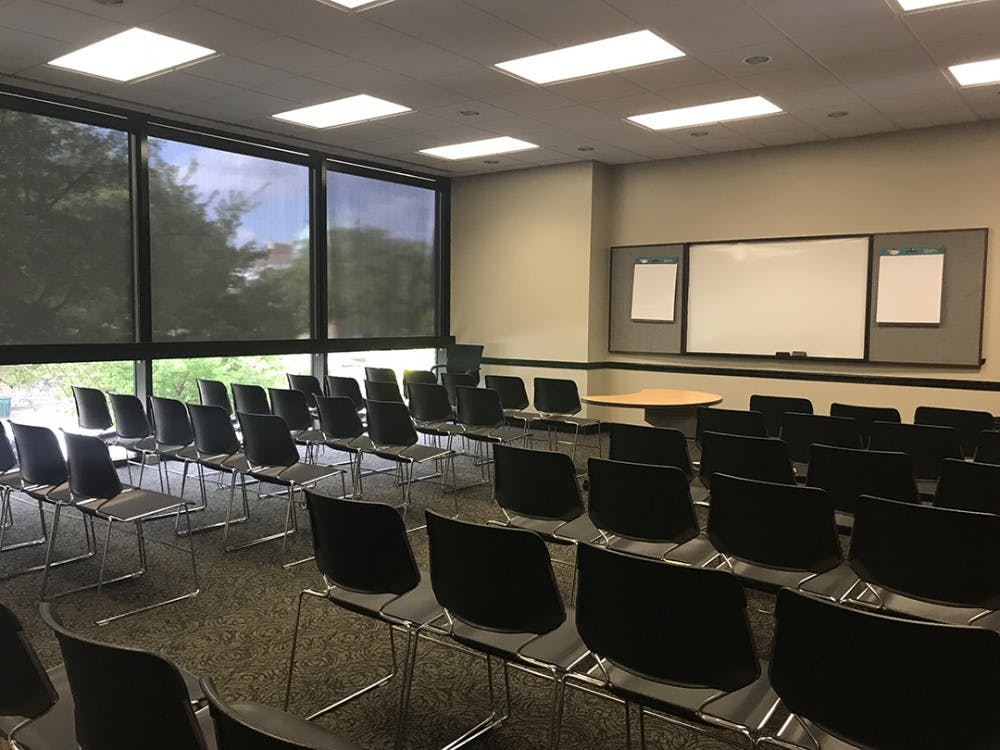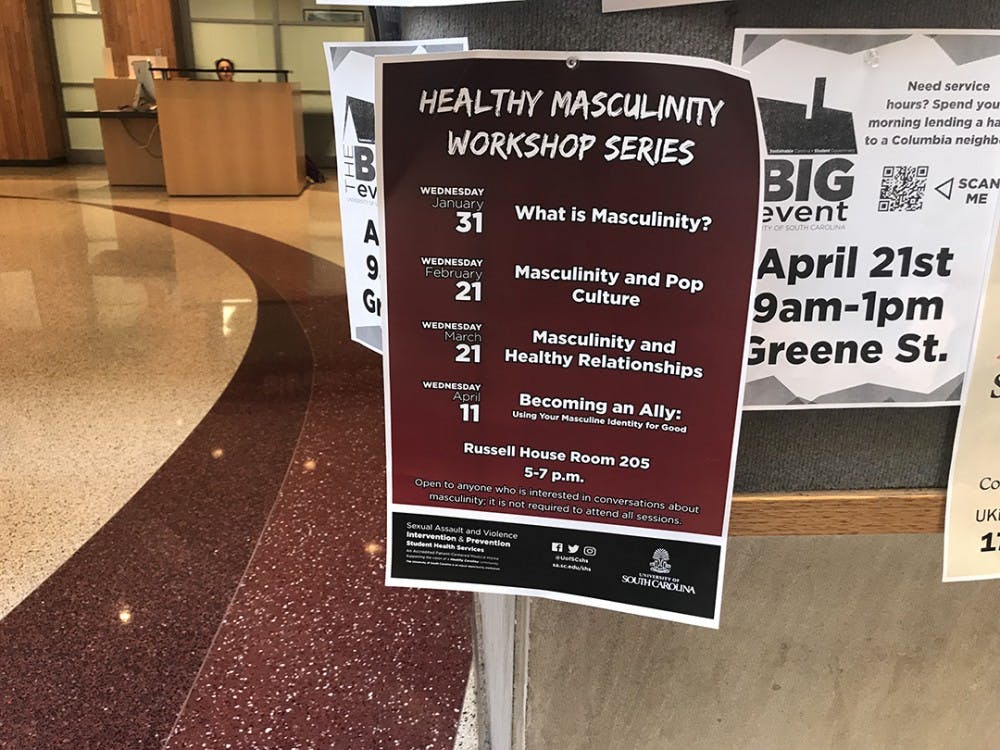Healthy masculinity workshops teaching about the roles of masculinity in society and relationships have been held throughout the spring semester. The workshops started on Jan. 31, but very few people have attended, sometimes including the instructor.
First-year business student Logan Steffke was looking forward to the seminar — until he realized the workshop leader wasn't there.
“It’s a pretty cool seminar and I was assigned through my speech class to write a one to two page paper on a live presentation,” Steffke said. "This one seemed like I'd get the most useful information."
Workshops were held four times throughout the semester. The very first workshop had an instructor and one participant. By the last workshop, the one Steffke attend, there was one interested student and no instructor.
“I walked in here at five,” he said. “I said ‘don’t even tell me right now’ I said ‘don’t even tell me this isn’t going to happen’ because I'm gonna have to email my teacher, and I don’t want to have to ask for like an extension on my assignment, but listen I came to the seminar ... I have stuff to do from 7:30 all night tonight.”

Steffke did not believe the topic of the workshop was the reasoning behind low attendance. Instead, he thought the event wasn't promoted enough to students.
“I think it’s about the general awareness of these seminars going on,” Steffke said. “I think it’s the fact that people aren’t on the day to day actively looking through the Carolina event calendar online to see what seminars they can go to.”
Even without attending workshops, students around campus have developed their own opinions about what healthy masculinity means in reference to themselves and society.
“I would define healthy masculinity as not just the physical expression of strength but the actual strength of a man — of who he is,” said Joshua Helms, a fourth-year religious studies student. “Being confident in who he is as a person and how he represents himself as he goes into a room and being able to be that steady hand in knowing when to speak up for others and knowing also when to be quiet.”
David Flowers, a third-year English student, believes that men ineffectively fit their masculinity into society because they do not understand the privileges they have that the other half of the population do not.
“I think it’s having the wherewithal and having the self-awareness to know placement in society and to be aware of one’s own privilege,” Flowers said.
Many men on campus believe healthy masculinity fits into society along with healthy femininity creating equal gender roles. They think healthy masculinity is not anti-feminism, but it also allows men to be proud of who they are.
“I think it goes hand in hand ... with healthy femininity,” Helms said. "I think both roles have the equal things they can bring to the table, and there's no one over the other."
Another aspect of healthy masculinity, recognized by students like first-year nursing student Lahsen Grich, is recognizing members of the LGBTQ community. He emphasizes that men need to be more comfortable in who they are regardless of their sexual identity.
“I guess it’s just being able to express yourself how you want and not caring what other people think,” Grich said.
Healthy masculinity workshops are meant to instill these ideas in men to make them more comfortable in who they are while not detracting from the role of women in society. Future workshops that are similar could ensure that other male students at USC carry with them an understanding of what masculinity means.
“It’s time that men are able to go back to what masculinity is. I think, nowadays we have a lot of boys, and they don’t understand what it means to be masculine,” Helms said. “We have a bunch of boys that never become men and not necessarily a fault of their own, but a fault of the society where society has failed them, where we as a nation has failed them, as universities we have failed them, in families we have failed them.”
UPDATE: Student Health Services has apologized for the "last-minute cancellation" of the Healthy Masculinity workshop. In a statement, the organization clarified that the host of the event had to unexpectedly stay with a client.
"We realize we should’ve gotten a message to the Russell House to alert participants of the situation," they said in an email to The Daily Gamecock.
They also said they have reached out to Steffke.

